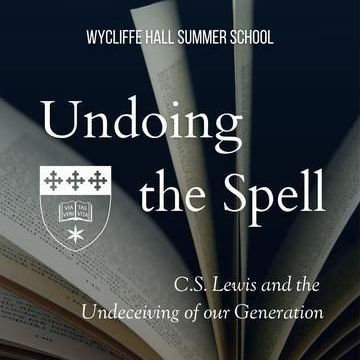The Parable of the Banquet (and one under-dressed guest)
A short sermon for Morning Prayer on Matthew 22:1-14
Most mornings at Wycliffe we have Morning Prayer (you can see the form it usually takes here). In it there is opportunity to share a short message. During term time, the students lead and preach in chapel, but in the week before term begins (0th week in Oxford lingo), the tutors lead chapel and preach. On Thursday this week, I was up and chose the reading from Matthew 22:1-14.
Why did I choose it?
Because some people have a great deal of difficulty with this passage and has been used to legitimate religious abuse. It can be used to browbeat people into right behaviour (because otherwise Jesus will judge you) and becomes a burden that is onerous and unbearable. But recently, I also heard a reading of the passage recently that tried to offer an antedote to this misreading by saying the man who was inappropriately dressed at the wedding (and thus thrown out into the outer darkness) was actually Jesus.
There are manifold problems with this reading as well!. The parable in question is clearly a messianic banquet. The king is throwing a wedding feast for his son. There are close parallels to the previous parable of the vineyard. It’s builds on the critique and rejection of Jewish religious leaders in that parable by saying the “anyone and everyone” who were welcomed into the banquet likewise have a responsibility to be faithful with what God has given them.
So I chose this parable to preach on. If I’d had more time I would have worked this into the sermon. As it was, it was just in mind in my prayers and preparation.
***
It is funny how with passages and parables in the Bible, we can read them, hear them preached, maybe do a Bible study or two on them and still find that we’re left remembering a story that is a bit different from the ones we find in the text.
Take this morning’s parable in Matthew 22, which is also found in Luke 14. It’s easy to hold onto the memory of the banquet thrown by a king, to which the invited guests refuse attendance for different reasons. We remember the king’s generous and gracious response to send his servants out again to bring in the least of these. The abandoned, the forgotten, the outcast. The unworthy.
But today’s lectionary invites us to reflect on Matthew’s version, which has a harder edge. Not only do the guests rebuff the invitation, but they mock the great sacrifice and cost the king has gone to preparing a feast in expectance of their attendance. They depart and go off about their business and those that don’t take to mistreatment, abuse and murder. And not only do the guests respond with greater acrimony than in Luke, but the king responds with a lot more than just anger. He sends his troops to destroy the guests-turned-murderers and burns down their city.
It’s only then that the king invites others—not just the down-trodden but in Matthew it’s anyone: the good, the bad and the ugly. Any and all are invited.
And then we discover the unique epilogue to this story in Matthew—still with this tougher message. One guest has shown up lacking the custom wedding robes and he’s called out by the king. And the man is taken, bound and cast out into outer darkness.
"The wedding is ready, but those invited were not worthy." The king says of the guests who rejected his invitation and killed his servants.
And the one that came insufficiently dressed showed himself unworthy too.
It’s not the version of story that is easy to sit with. Especially first thing in the morning of a cold January! But it is a story we are to heed. As Ofula challenged us yesterday, what can be given can indeed be taken away and like yesterday’s lack of fruit—today’s lack of proper clothing—is just cause.
But the clothing we are to wear is not an expensively tailored suit for a wedding today or a new and glamorous dress and matching shoes. It is the simple clean, linen garment we have at home. It is not out of reach or an impossible ask on our budget. It is not a heavy burden to bear—it is a work tailored just for us.
Make no mistakes, it is work, yes. Reneging on this work comes with a high cost. There is diligence and effort and focus required. But it is a work borne of the Spirit. And it is a work worthy of the King.
******
Photo by Mitchell Orr on Unsplash
Subscribe to
My Newsletter
Sign up here to receive quarterly updates (and occasional other news blasts) about how ministry is going and our move to the U.K.



